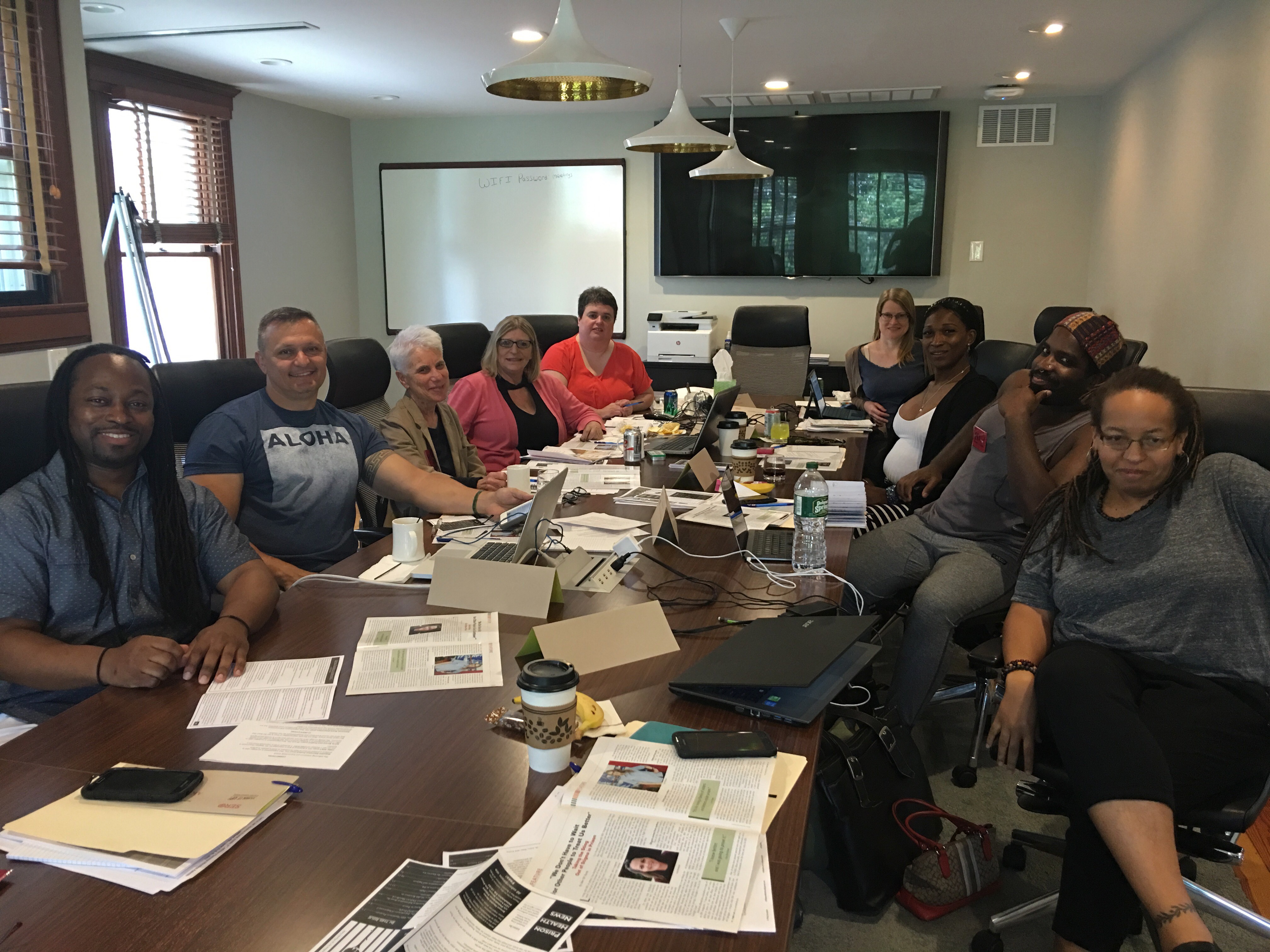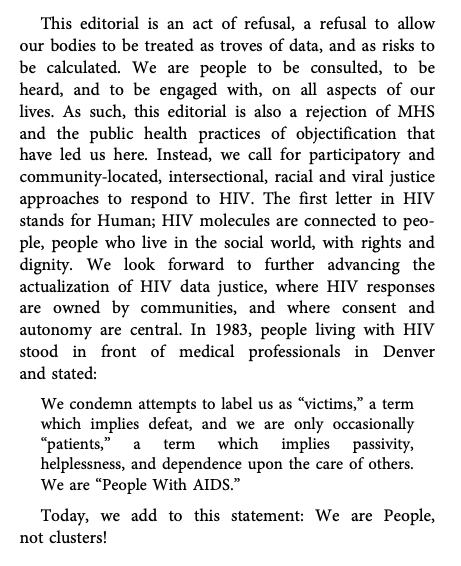Google translation. For article in Russian, please go to: https://uz.sputniknews.ru/analytics/20201028/15275804/Nakazanie-za-bolezn-pochemu-VICh-v-Uzbekistane-do-sikh-por-prestuplenie.html
Unfortunately, people living with HIV in Uzbekistan are victims of a discriminatory legal system. But there is hope that with the country’s entry into the UN Human Rights Council, the situation with obsolete norms will begin to change.
TASHKENT, October 28 – Sputnik, Anna Zhelikhovskaya. Shortly before the introduction of quarantine in Tashkent, an investigation began on the case of 52-year-old Natalya (name has been changed. – Editor’s note), a single mother who works as a hairdresser and colourist. The woman is a professional master all-rounder with over 20 years of experience in this field. She was charged under article 113, part 4 of the Criminal Code of the Republic of Uzbekistan “The spread of a venereal disease or HIV infection / AIDS” – knowingly endangering or getting infected with HIV / AIDS.
Positive result
In 2014, the List of professional activities prohibited for persons infected with the human immunodeficiency virus was updated. It included, in particular, the profession of a hairdresser associated with cutting and shaving. Natalya’s story began in 2017, when the director of the beauty salon where she worked sent employees to undergo, as it turned out, mandatory HIV testing.
“My test turned out to be positive. I realised that it was impossible, and retaken the analysis. I don’t know how I got through these days of waiting … The answer was again yes. The first thing I experienced was shock. Before that, I did not know anything about this disease I never came across him. Of course, the doctors talked to me, I registered at the Tashkent City AIDS Center, leaving all my data there, “the woman recalls.
She immediately started taking antiretroviral therapy (ART). This specific treatment helps patients block the virus, which means they do not put others at risk, live a full life, have a family and healthy children. For the next two years, she continued to work in the service industry, realising every day that management should know about her illness. Natalya explained the lack of a certificate to the director by the fact that she could not pay for the test at the moment.
“With the best of intentions, of course, he called the SES and asked if I could still not take the test, since I’m not a beautician, I don’t do tattoos and make-up, neither do manicure. I work with paints and cut my hair, mainly with a machine. replied that in this case, the test can not be taken, “- says the woman.
According to her, she did not report the test results to the director because she was afraid of losing her job. Raising a teenage child alone, a woman treasured her only source of income. In addition, Natalia had already learned enough about her illness and understood that with an undetectable viral load (the amount of virus in the blood), she was safe for others.
“Of course, I do not justify myself in any way. I had to report everything to the management and leave the profession. But I was scared, I was lost and did not understand what to do next, how to live now …”
In March 2020, a few days before quarantine, police officers came to the beauty salon with a purposeful check. According to the woman, one of them took her into a separate room and said that with such a diagnosis she was not allowed to work as a hairdresser. It was explained to Natalia’s colleagues and her management that the problem was in the medical book. At the same time, according to her, one of them reassured her, assuring her that there would be no trial, and she would limit herself only to a fine. However, an investigation soon began and the first court hearing was scheduled. Before the trial began, none of her colleagues and the director knew about the real reason for the audit.
“In a conversation with an operative, a doctor in the AIDS center, in the makhalla committee indirectly, not directly, but it was felt that I was suspected of indecent behaviour. To say that I was mentally and psychologically crushed is to say nothing. I am a believer, I walk to the church. For the trial, even my positive characteristics were provided from there, “recalls Natalya.
Today in the minds of people there is still a deep conviction that this is a disease of the marginalised. And if a woman has it revealed, then she will certainly receive the stigma of the fallen. Antiquated HIV legislation also hinders the fight against this stigma.
A new look at old laws
Uzbekistan’s Criminal Code was approved in 1994, and article 113 has its roots in the 1980s. Then the diagnosis was really a sentence, there was no treatment or diagnosis, and criminal prosecution was considered almost the only type of prevention. Several years ago, the World Health Organization officially recognised HIV as a chronic, not fatal, disease. People who regularly take therapy live long and healthy lives. Therefore, the list of permitted professions and the justice system for positive ones should be revised.
“To date, not only has the status of the disease changed, but there is also a lot of data that make it possible to unequivocally assert that criminal prosecution does not prevent the spread of the virus in any way. The existence of criminal liability for endangering and transmitting HIV, on the contrary, leads to the fact that people who practice risky behaviour, avoid testing. After all, while they do not know about their status, they are not subject to responsibility, “says lawyer Timur Abdullaev.
Natalia’s public defender at the trial was Evgenia Korotkova, coordinator of the Positive Women program “Ishonch va hayot”. She says that they monitored the list of prohibited professions for people with HIV in the CIS countries, and nowhere is the profession of a hairdresser.
“At the very first court session, we petitioned for the appointment of a forensic medical examination with the involvement of an experienced infectious disease expert working with HIV. The investigation established that the accused had zero viral load. danger. The indictment states that in order to prevent infection of third parties, she did not work with cutting tools, but used a typewriter. That is, by her actions, she tried to protect clients from HIV transmission, “says Evgenia.
In world medicine, the thesis “Undetectable = Untransmittable” (the principle “U = U”) has been finally proved. Experts and legislators of Uzbekistan have more than 10 years of their own observations and statistics, confirming international data. This already allows us to revise the list of prohibited professions for people with HIV, the relevant law and decriminalise Article 113.
You can already start by looking at the list of prohibited occupations that people with HIV can do.
“Amendments to this list can be achieved if the convict in question does not stop and continues to defend her rights up to the Constitutional Court and the UN Human Rights Committee,” the lawyer said.
According to him, the UN Special Rapporteur on the Right to Health and representatives of other structures of the organisation spoke about the harm of HIV criminalisation, as well as the fact that it violates a number of rights enshrined in international pacts ratified by Uzbekistan. However, so far no action has been taken in this direction.
According to human rights activists, there is a serious flaw in Article 113, which is found in almost all the criminal codes of the Central Asian countries: it contains the word “knowingly”.
“What is” knowingly “and how it relates to intent, the Code itself does not explain. As a result, such a” trifle “becomes a secondary circumstance. Whether intent or not can affect only the severity of punishment, but responsibility does not cancel out. depending on whether a person wanted to infect someone with HIV or not, the article “shines” in any case, “Timur Abdullaev explained.
Usually such inaccuracies in the legislation are eliminated either by bylaws or by Resolutions of the Plenum. But with regard to Art. 113 there is neither one nor the other. There are only Criminal and Criminal Procedure Codes, and everything else is at the discretion of the court. If the judge does not understand what HIV is and how it is transmitted, then the defendant will have a difficult time.
Moreover, even among scientists there is no consensus on whether the presence of intent is mandatory for the onset of responsibility. If so, what should this intent be? After all, it can be direct – “malicious” or indirect.
We need to talk about it
Evgenia also talks about the low level of awareness of representatives of law enforcement agencies and the judiciary about HIV transmission and treatment. She is convinced that to a greater extent this is what influences the sentencing. In her opinion, the application of modern scientific evidence in criminal cases can limit unfair prosecutions and acts of justice.
“When making a diagnosis, doctors do not tell patients about the ‘N = N’ strategy, but take a receipt of criminal responsibility for infecting others with them. Also, activists have difficulty access to the accused, and most lawyers have a prejudiced attitude towards such clients,” the human rights activist adds …
According to the law of Uzbekistan “On the protection of the health of citizens”, the patient has the right not only to keep confidential information about the diagnosis, but also to choose the persons to whom information about the patient’s health can be transferred in the interests of the patient.
Natalia and HIV activists ask themselves: where did the law enforcement agencies get the information about her diagnosis and why did they come to work, inflicting severe moral and psychological damage on the woman? Thus exposing her to the risk of disclosing the diagnosis. At the request of the editorial office, this question was answered at the Republican AIDS Center. We publish the text in full.
The Republican Council for the Coordination of Citizens’ Self-Government, the Committee on Religious Affairs and the Youth Union of Uzbekistan, the Tashkent AIDS Center provided information to the Criminal Investigation Department of the Ministry of Internal Affairs on February 10, 2020 at the request of citizens who are diagnosed with HIV and who work in salons of personal services. At the same time, the center’s specialists ensure the confidentiality of information about people living with HIV and medical secrets in accordance with Article 45 of the Law “On the Protection of Citizens’ Health” dated August 29, 1996, “the letter says. It was not possible to drop the charges against Natalia. But she escaped real imprisonment and received a two-year suspended sentence.
“A large role in our case was played by the competence and interest in the details of the case, as well as in the topic of HIV and the ways of its transmission on the part of the judge and the prosecutor. But this is more a special case than a rule. The judge gave recommendations to lobby for a revision of the list of prohibited professions for HIV – positive, to exclude the position of a hairdresser from it, “says Evgenia Korotkova.
The media should also participate in the formation of a competent public opinion about HIV, but today this topic is almost never raised in the press, and specialised structures do not interact well with journalists.
Now Natalia has no official job. Several times the makhalla provided her with material assistance, both in connection with the pandemic and with her current situation. But there is no regular, even minimal, earnings.
On October 15, 2020, Uzbekistan adopted a law “On the Rights of Persons with Disabilities.” It lists the basic principles that ensure their rights and protection against discrimination on health grounds. People living with HIV should have similar guarantees. Uzbekistan recently joined the UN Human Rights Council. Perhaps this status will speed up the revision of Article 113 of the Criminal Code. Lawyers are convinced that the punishment should follow exclusively for willful malicious infection or its attempt. Reforms in this area will significantly strengthen the position of the republic in the field of human rights protection.



